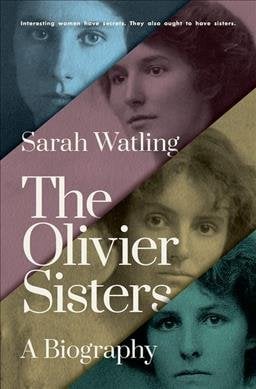Margery, Brynhild, Daphne, and Noel Olivier were well-educated, socially privileged, precocious, striking, scandalous, engaging, and so closely knit that they were the objects of fascination and admiration both during their lives and long after. Here, Sarah Watling offers a group portrait of the sisters as they lived and negotiated the turbulent changes of the first half of the twentieth century, each one devoted to the other but choosing and pursuing her own extraordinary path. After a childhood spent in colonial Jamaica (where their father was governor), the sisters became members of the Neo-Pagan group that gathered around the poet Rupert Brooke in Cambridge, and helped orchestrate that group’s encounters with Bloomsbury. Drawn first to Brynhild’s oft-remarked-upon beauty, Brooke ultimately fell in love with the schoolgirl Noel, complicating the sisters’ relationships for years to come. Noel would go on to become a medical doctor during World War I, Daphne to set up the first Steiner school in England. Watling brings the Olivier sisters from the margins to the main stage of history, providing a window onto early feminism, wartime, progressive politics, twentieth-century medicine’s relationship with women, and post-war culture. A Who’s Who cast of famous figures of the period rotates through the book–including George Bernard Shaw, H. G. Wells, C. S. Lewis, and Rudolf Steiner, as well as members of the Bloomsbury group, including Virginia Woolf and John Maynard Keynes–but at the heart of it is a portrait of sisterhood in all its complexities and in all its personal and political guises. This is the first book to focus on the Oliviers themselves, and to do their rich story full justice.












